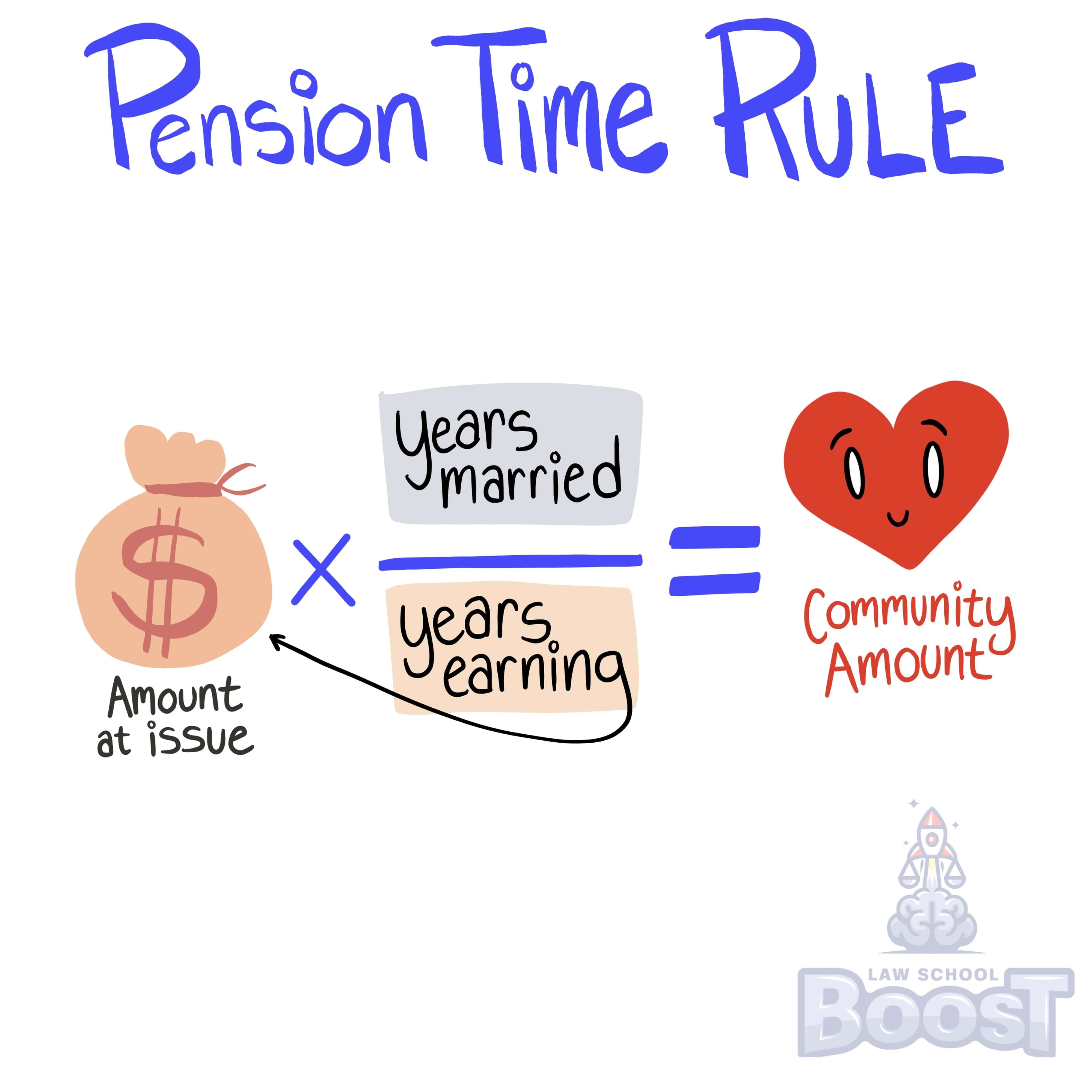🤧
Community Property • Equal Division of Assets
CPROP#008
Legal Definition
The economic circumstances exception permits a non-pro rata division in which one spouse takes a particular asset and cashes out the other spouse (e.g., in the case of a family residence, closely held corporation, or pension).
Plain English Explanation
While common property is generally divided evenly, there’s an exception called the economic circumstances exception that allows for a slightly different allocation of assets between the couple. Under this exception, each person has to get half of the value of an asset, but not necessarily half the asset itself. This exception exists because some assets, like a shared house, are pretty hard to split down the middle. To make sure the ex-couple doesn’t have to sell the house if they don’t want to, the economic circumstances exception allows one person to take the whole house and pay the other person half the value of the house. That way, everything is still 50/50 in terms of dollar value.
Hypothetical
Hypo 1: Bob and Amy are going through a divorce, and they own a family home worth $500,000. Both of them want to keep the house, but neither wants to sell it. Result: The court may apply the economic circumstances exception, allowing Bob to keep the house while paying Amy $250,000, which represents Amy’s share of the home’s value. This way, Bob keeps the home, and Amy gets her fair share in cash.
Hypo 2: Bob and Amy own a small business together, valued at $1 million. They can’t agree on how to split the business, and neither wants to sell it. Result: The court could use the economic circumstances exception to let Bob keep the business. In return, Bob would have to pay Amy $500,000, so that Amy receives her share of the business’s value without having to co-own the business with Bob anymore.
Hypo 5: Bob and Amy own several investment accounts, each worth around $100,000, and they agree to split them evenly. Result: The economic circumstances exception wouldn’t apply here because the assets can be easily divided without any practical difficulties. Each party would simply take half of the investment accounts, maintaining the equal division as the general rule requires.
Hypo 2: Bob and Amy own a small business together, valued at $1 million. They can’t agree on how to split the business, and neither wants to sell it. Result: The court could use the economic circumstances exception to let Bob keep the business. In return, Bob would have to pay Amy $500,000, so that Amy receives her share of the business’s value without having to co-own the business with Bob anymore.
Hypo 5: Bob and Amy own several investment accounts, each worth around $100,000, and they agree to split them evenly. Result: The economic circumstances exception wouldn’t apply here because the assets can be easily divided without any practical difficulties. Each party would simply take half of the investment accounts, maintaining the equal division as the general rule requires.
Visual Aids



